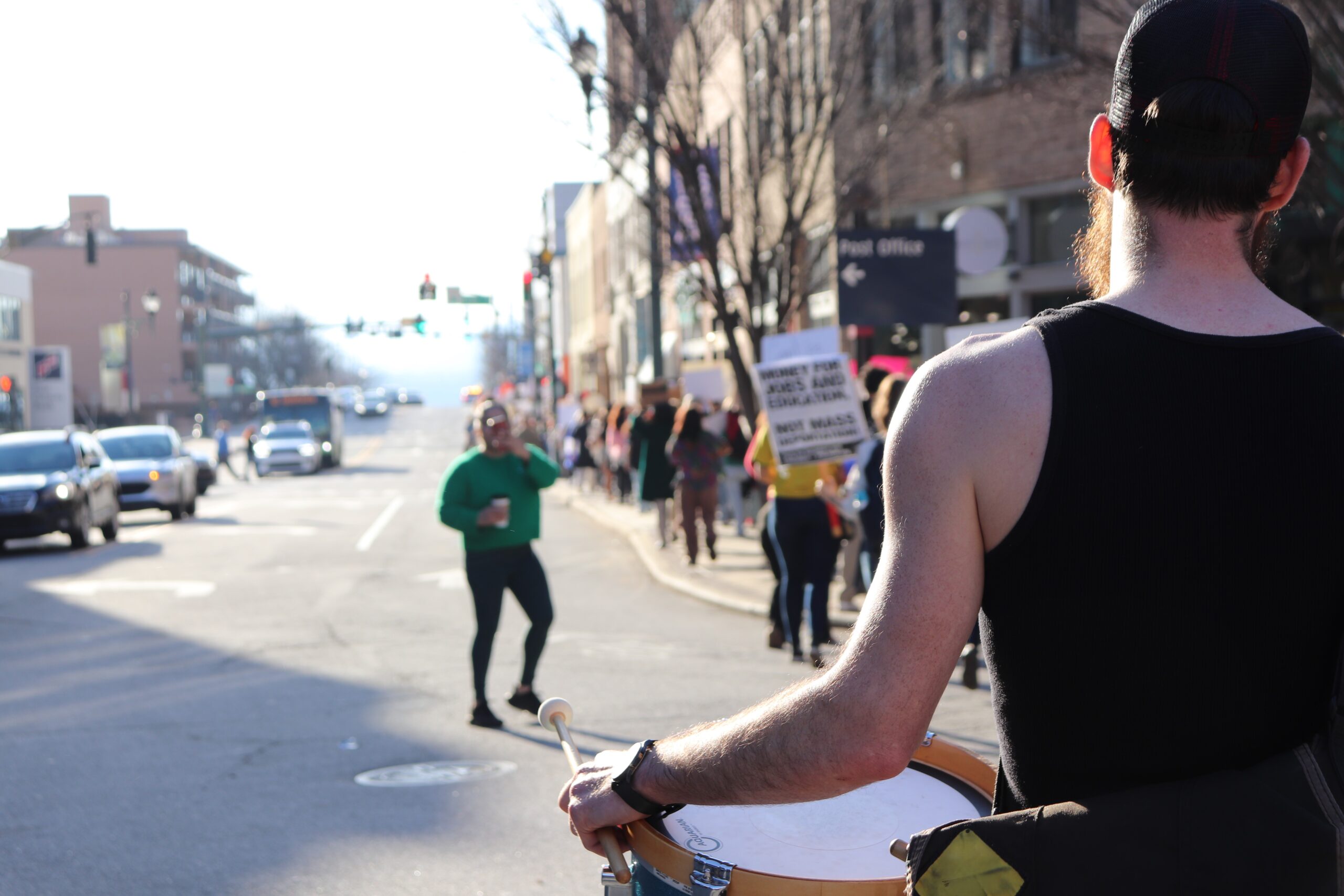Legal Disclaimer: The information provided herein is intended solely for educational and informational purposes and does not constitute legal advice. Neither the author, publisher, nor any affiliated parties assume any responsibility or liability for any actions taken based on this information. Users are solely responsible for ensuring that their actions comply with all applicable local, state, national, and international laws and regulations. If legal advice is required, please consult with a qualified attorney.
I never wanted to write this, but after witnessing the risks at recent protests, it’s clear many don’t fully grasp the dangers they’re facing. Protesters in Asheville are gathering courageously to demand change—often unmasked and exposed in public spaces. While peaceful activism is vital, we can’t ignore the reality: those opposing us may not share our commitment to nonviolence. Preparation isn’t paranoia—it’s survival.
Asheville sits in a region with five active hate groups within a two-hour drive. When you protest publicly, you can legally be photographed or filmed without consent, and those images can end up on extremist platforms in seconds. Suddenly, you and everyone around you could be targeted on dangerous watchlists. Following safety guidelines isn’t “overreacting”—it’s shielding yourself, your loved ones, and your community.
Local leadership, like Buncombe County Sheriff Quentin Miller, has pledged to limit cooperation with ICE beyond HB10, and the Asheville Police Department (APD) has publicly supported peaceful demonstrations. I’ve seen APD officers block roads and monitor protests to keep crowds safe. But trust in this support can’t blind us to the possibility of shifting policies. Stay vigilant: document interactions, know your rights, and always have a plan.
1. Prioritize Personal and Collective Safety
Protesting is a powerful way to advocate for change, but staying safe requires preparation. Asheville’s protests often center on public spaces like Pack Square or the steps of City Hall, so dress for the environment: wear comfortable, layered clothing, closed-toe shoes, and weather-appropriate gear. Bring essentials like water, snacks, a basic first-aid kit, and a mask (for smoke, or tear gas). Stick with a trusted group or buddy, and agree on a meeting point in case you’re separated. Stay aware of your surroundings—avoid bottlenecks, and note exit routes in case crowds disperse quickly. If tensions rise, focus on de-escalation: avoid engaging with counter-protesters, follow directives from trained marshals, and prioritize leaving safely over confrontation. Solidarity means looking out for one another, so check in on fellow protesters and offer help if someone is injured, overwhelmed, or targeted.
2. Safeguard Your Identity in Public Spaces
In an era of widespread photography and facial recognition, protecting your identity is critical. Assume you’ll be photographed or filmed, even unintentionally. Wear nondescript clothing (avoid logos or unique patterns) and consider a hat, sunglasses, and a mask to obscure your face. To follow NC law, you can only wear “a medical or surgical grade mask for the purpose of preventing the spread of contagious disease.” Avoid carrying personal items with identifying information, and leave your phone at home. If you must bring a phone, use a VPN, disable location services, and test and use a Faraday bag on your device. If documenting the protest, blur faces in photos/videos before sharing online, and ask for consent before posting images of others. Be mindful of social media: avoid geotagging protest locations in real-time, and refrain from sharing plans publicly. For added privacy, use encrypted messaging apps like Signal to communicate with organizers. Remember, anonymity protects not just you, but others in your community from retaliation or surveillance.
3. Know Your Legal Rights
Understanding your rights is your best defense against potential legal risks. In Asheville, protests on public sidewalks and parks are generally legal without a permit, but permits are required for marches that block traffic or use amplified sound. You have the right to record police interactions in public spaces, but stay calm and avoid obstructing officers. If approached, ask, “Am I free to go?”—if detained, stay silent beyond providing your name (required by NC law) and request a lawyer immediately. Memorize local legal aid contacts like the NC ACLU (919-834-3466), and write their numbers on your arm in marker. Police cannot confiscate your phone or demand password access without a warrant. If arrested, avoid resisting (even verbally), as it can escalate charges. Post-protest, document any injuries or rights violations, and report them to advocacy groups. Knowledge of your rights ensures you can protest confidently while minimizing legal vulnerabilities.
In a world where activism is both a powerful tool for change and a potential target for harm, preparation and awareness are indispensable. The courage of Asheville’s protesters is undeniable, but that bravery must be matched with caution. By prioritizing personal safety, safeguarding identities, and understanding legal rights, activists can protect themselves and their communities while continuing to demand justice. Peaceful protest is not just an act of resistance—it’s a testament to hope and resilience. Yet, we must remain vigilant, recognizing the risks and taking proactive steps to mitigate them. Solidarity means standing together, but it also means ensuring everyone returns home safely. As we march forward, let’s do so with both determination and wisdom, knowing that our strength lies not only in our voices but in our ability to care for one another. Stay safe, stay informed, and keep fighting for the change we need.


